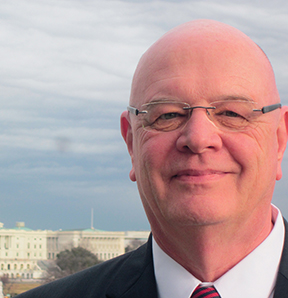Louisiana, we are told, is a “poor” state, ranking at or near the bottom of every “quality of life” measure for her residents: income, education, health outcomes, and so forth. But we are also told how “rich” this state is – ranking among the top ten in both oil reserves and oil and natural gas production, and with cultural offerings that keep us among the top tourism draws in the nation.
Our land is sinking in natural resources and overflowing with those capitalizing greatly from them, while the state consistently ranks second highest in overall poverty of her citizens.
Can Louisianians rectify the lopsided reality which places a significant regressive sales tax burden on individuals, especially those of the lower income group? To answer the question, “Where would Louisiana make-up the difference?”, one might first look at the Industrial Tax Exemption Program (ITEP) and its various local iterations around the state.
For several years now, we’ve been hearing how Southwest Louisiana is booming, with the state’s lowest unemployment rates, highest job growth, largest capital investments, biggest-ever economic boom – eclipsing even the World War II-era establishment and growth of the region’s petro-chemical complexes. But at what overall cost?
In Calcasieu — a parish which exempts just under $300 million in property taxes annually, while retaining roughly a relatively meager $210 million each year – the process to obtain the maximum 80% industrial tax exemption is well-greased, since the Calcasieu Parish School Board in October adopted a revision in the rules governing how applicants for exemptions would make their way before the parish school board, sheriff, and police jury.
The group is named the Calcasieu Parish Taxing Authority, and its rules state they “meet to objectively review and make a unified recommendation to the taxing authorities for the Industrial Tax Exemption Program.”
However, the objectivity of this setup may be fairly questioned because these meetings are private and strictly confidential, and the facilitator of the group is the head of the Southwest Louisiana Economic Development Alliance. They have not established – publicly – any formal guidelines for the evaluations.
The legality of this scheme is being questioned, with concerns about it violating Louisiana’s open meetings and public records laws, because the appointees to the Calcasieu Parish Taxing Authority for ITEP are carrying out public functions in a venue closed to the general public.
Indeed, according to the Taxing Authority’s most recently (October 2018) revised rules, even local elected officials are prohibited from attending the meetings, “due to concerns about confidentiality and the competitive nature of industrial projects.” Whatever critical analysis is taking place occurs within the private halls of pro-business Southwest Louisiana Economic Development Alliance—hardly an open or neutral forum. Calcasieu has essentially created a proxy committee that is able to “evaluate” exemption proposals away from the eyes and the scrutiny of concerned citizens in the headquarters of an organization privately-funded by the very companies applying for tax exemptions.

George Swift is president of the SWLA Economic Development Alliance, and the host of these closed-door meetings. A radio broadcaster by trade, the native of Selma, Alabama, moved to Lake Charles in 1987 to manage one of the area’s radio station groups. He also served as president of the Louisiana Association of Broadcasters (LAB), on the board of the National Association of Broadcasters, and as president of the Chennault Airport Authority board. In 2006, he became head of the Chamber Southwest, which expanded its umbrella to become the Alliance.
The organization counts among its board members representatives of Sasol, a petrochemical conglomerate headquartered in South Africa, and Westlake Group, Citgo, and Phillips 66, massive oil and gas corporations based out of Houston, Texas.
The other members of the Taxing Authority include Wilfred Bourne, the Calcasieu Parish School Board’s chief financial officer; Tammy Bufkin, the Calcasieu Parish Policy Jury director of finance; and Sharon Cutrera, chief financial officer for Calcasieu Parish Sheriff Tony Mancuso.
None of these members are elected officials, and yet their recommendations are used to steer lucrative tax incentives (public dollars) to private businesses.

Most recently, Driftwood LNG’s application for a $1.4 billion, five-year exemption from paying property taxes (one of the largest in Louisiana history) for its planned $16 billion liquified natural gas terminal, advanced through this secretive committee and was then hastily approved by the local taxing authorities, followed swiftly by approval from the state Board of Commerce and Industry.
Before Gov. Edwards’ Executive Order 16-73 in June 2016, manufacturers were able to apply for complete exemptions from paying parish ad valorem property taxes via the Louisiana Board of Commerce and Industry. With a staggering 99.95% frequency over a twenty-year period, these exemption applications were approved. Due to public outcry over the frequency with which the state board uncritically “rubber stamped” exemptions that individual parishes would have to honor, Gov. Edwards established that applicants for exemptions would have to demonstrate their value and make their case to the communities potentially affected.
Applicants must now include the numbers of jobs the projects will create and the anticipated return on investment each project will generate for the state and its specific location. Moreover, rather than a complete exemption, applicants can now request up to 80% exemption of their property taxes – unless the application is for a “mega project.” That designation allows up to 93% exemption of taxes.
The reform’s rationale was that ITEP was creating a net loss for the state because – although it was attracting industry – recipients were still provided complete exemptions even if they were not creating jobs.
Together Louisiana discovered over a series of studies that on a per-capita basis, Louisiana’s Industrial Tax Exemption Program is America’s largest business subsidy program – two times larger than the 2nd-place state’s program, as of 2017.
Gov. Edwards’ executive order also required that local taxing bodies would have to approve the exemptions, before the state Board of Commerce and Industry could do so. That has made local taxing authorities, school boards and parish governments, the new ITEP playing fields, raising loud debates over what processes those locals adopt to ensure a balance between attracting businesses (that are not yet already sufficiently attracted) while expanding the property tax base.
Although Calcasieu ostensibly continues to defer to state Board and LED analysis (since we don’t know for certain what the Taxing Authority is actually evaluating behind those closed doors), East Baton Rouge is a different story.
In November, after a long battle between critics of ITEP and industry advocates (namely the Baton Rouge Area Chamber), the East Baton Rouge Metro Council adopted guidelines that require applicants seeking exemptions to create at least 15 full-time jobs. On December 5th, the EBR School Board voted down guidelines that would have established the pro-business Baton Rouge Area Chamber as one evaluator of the merits of each proposal – largely due to outcry from Together Baton Rouge and teachers who criticized the proposed process as being substantially different from the Metro Council’s. These members of the public spoke out in favor of a neutral party, such as the parish’s finance department, to crunch the numbers for exemption applications.
The issues will face another challenge in the coming weeks, as Exxon looks to move three exemption proposals through EBR taxing authorities. According to Together Baton Rouge, these projects have already been completed and Exxon does not need any more “incentive” to remain in EBR on top of their current exemption from two-thirds of their property taxes.
In New Orleans, progressive reforms to the ITEP approval process have had no problems passing the City Council. On December 20th, without a hitch, the New Orleans City Council voted to require exemptions only be given to companies that pay at least $18 per hour and are locating their projects in economically depressed areas – certainly the most progressive local ITEP guidelines to date.
In April 2018, the Southwest Louisiana Economic Development Alliance proudly declared the area “leads the nation with $108 billion in industrial projects recently completed, underway, or announced.”
Indeed, Southwest Louisiana may be a magnet for industrial development, but its boom is being built not by locals, but by thousands of construction workers temporarily imported from other states and countries.
Analysis of the Louisiana Department of Economic Development data conducted by Together Louisiana shows that Calcasieu Parish, from 1998 through 2017, actually lost 5,497 permanent full-time jobs, all the while forfeiting in excess of $4.4 billion in property taxes to the exemptions. ITEPs are not creating jobs in Calcasieu: incentives totaling $4.4 billion may be incentivizing job losses.
The parish school district ranks 28th of the 69 public school districts in the state, while Calcasieu voters said no to four of five school-related tax measures for schools in November 2017. Without those new tax revenues, the district struggles to do maintenance on existing facilities, and it can’t build new schools to accommodate the hyped population influx associated with construction of the industrial projects.
Calcasieu voters did renew a property tax this fall – one that funds the jail and courthouse. That’s helpful for the sheriff, as the legislature continues to try and reduce the amount of per diem paid to local jails for housing state prisoners. The Police Jury may be struggling to keep up with construction and maintenance of roads and drainage, as developers continue to overbuild overpriced housing for the promised influx of workers, yet it’s a matter of enough time and enough available workers, rather than a money crunch. The Police Jury budget remains flush, primarily thanks to higher sales tax collections.
The full cost of these “incentives” has yet to be totaled, for while the local Economic Development Alliance continues to brag on the industrial boom, more than a few businesses have closed, leaving buildings standing vacant.
Admittedly, some are due to national retail business contractions and mergers – K-Mart, Toys’R’Us, Rite-Aid, for example. Yet those were businesses that employed local residents, as opposed to imported – and temporary – construction workers, and the alliance admitted recently it had not developed any plan for trying to put those facilities back in commerce.

There’s also the uncalculated cost of pollution and environmental degradation perpetrated by the proliferation of these industries.
Chemical contamination of the soils and water bottoms – even down past the 200-foot sands of the Chicot Aquifer – have been documented by both the CDC and the EPA for more than three decades. Plumes of contamination have been migrating ever lower through the aquifer, and have been consistently monitored as a threat to the 700-foot sands –from which the region draws its drinking water – for more than 20 years.
Consider the story of Mossville – named for the WWI-era head of the Lake Charles Chamber of Commerce, C.D. Moss – a community now eradicated due to the accumulated poisons deposited by the chemical industries that surrounded it.
Local taxing bodies are now able to set their own guidelines for evaluating ITEP applications, separate from the guidelines LED and the Board of Commerce and Industry use on the state level. In contrast to Baton Rouge and New Orleans, there exists no visible advocacy group in Southwest Louisiana challenging the Taxing Authority’s potentially illegal blurred lines between the public and private spheres.
Will the residents of Calcasieu Parish continue to submit to LED and local private interest groups’ determination of “return on investment” and continue the hasty “rubber stamps” for exemption applications? Or will the people of Southwest Louisiana – and other communities around the state — utilize their statutorily-guranteed autonomy and meet the rhetoric of industry on these local playing fields?
